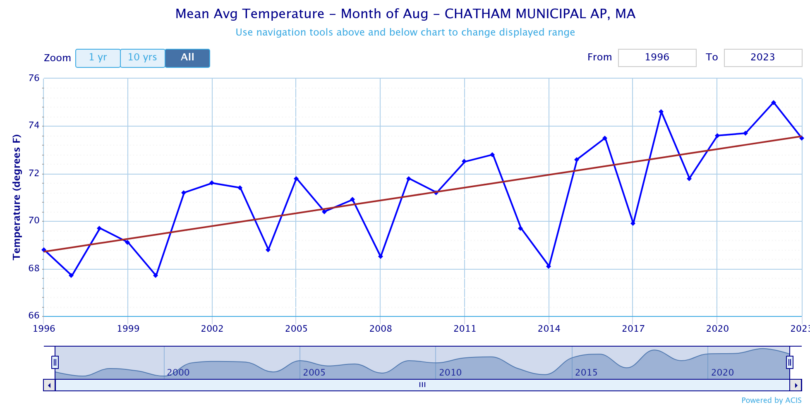CAPE COD – George Sylvestre, a fishing guide from Brewster, said that not that long ago he used to “roll it up” in September “but we started to extend it into October and the last two years I had successful trips all the way through Halloween.”
“I’m not a climatologist,” he said, “but it seems like the season is lasting longer than it used to.”
Jessica Spaccio, who is a climatologist with the Department of Earth and Atmospheric Science, Northeast Regional Climate Center at Cornell University, said, of a longer summer, “we’re starting to see that trend.”
And Mike Wankum, meteorologist with WCVB Channel 5 Boston, said, “You are seeing the summer lasting longer. We really are warming up faster than other places… New England is considered one of the fastest warming places on the planet.”
On Cape Cod, that makes for some interesting dichotomies of what it all means.































